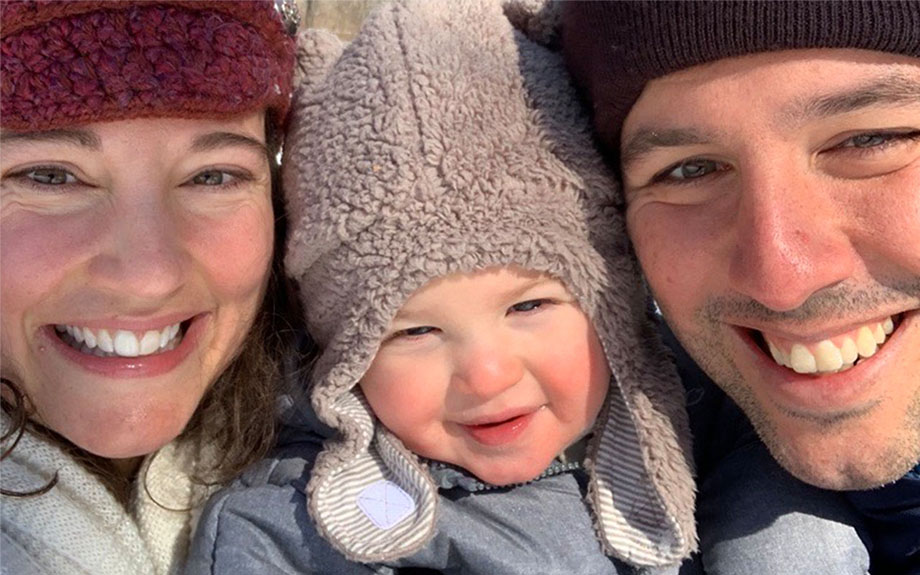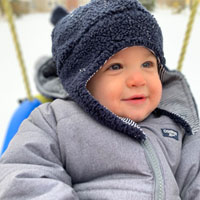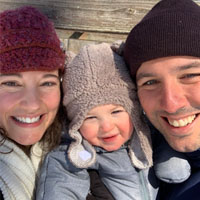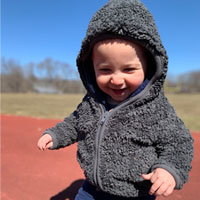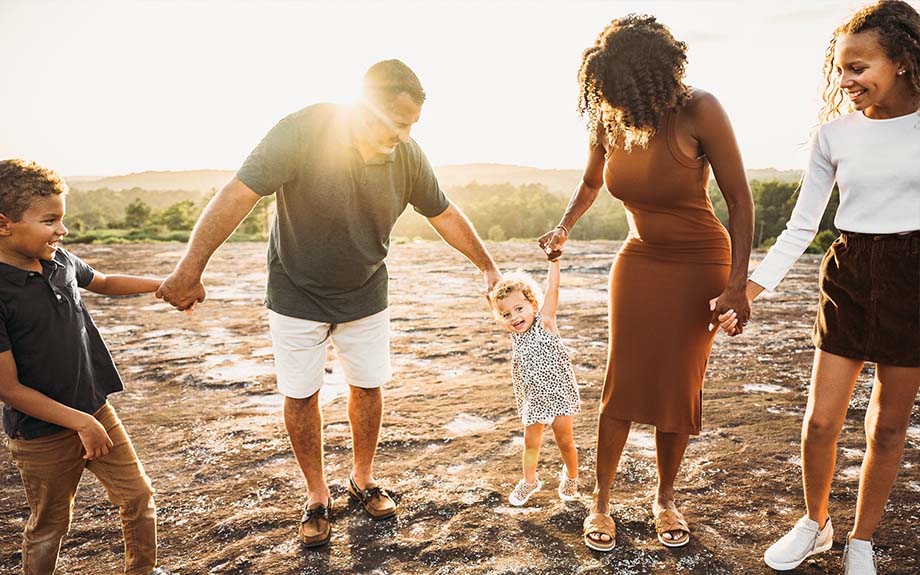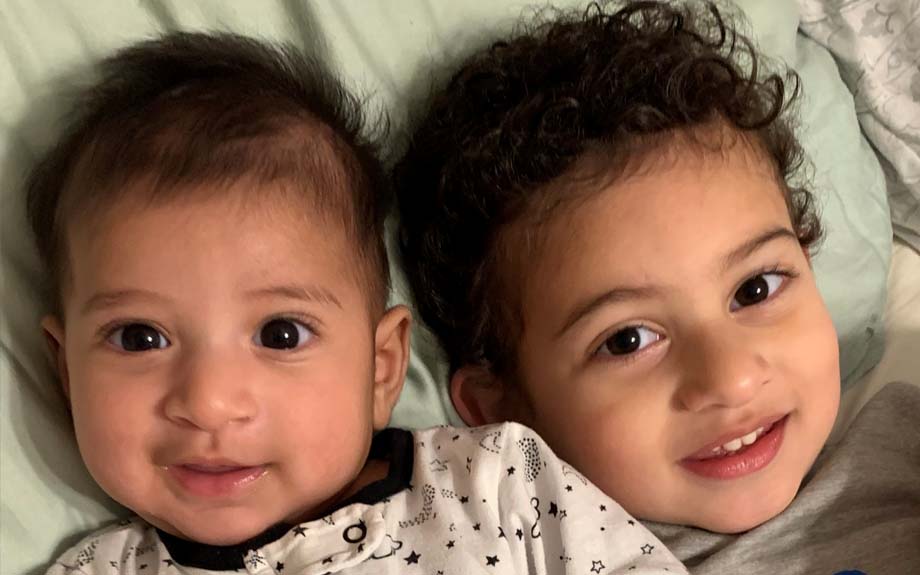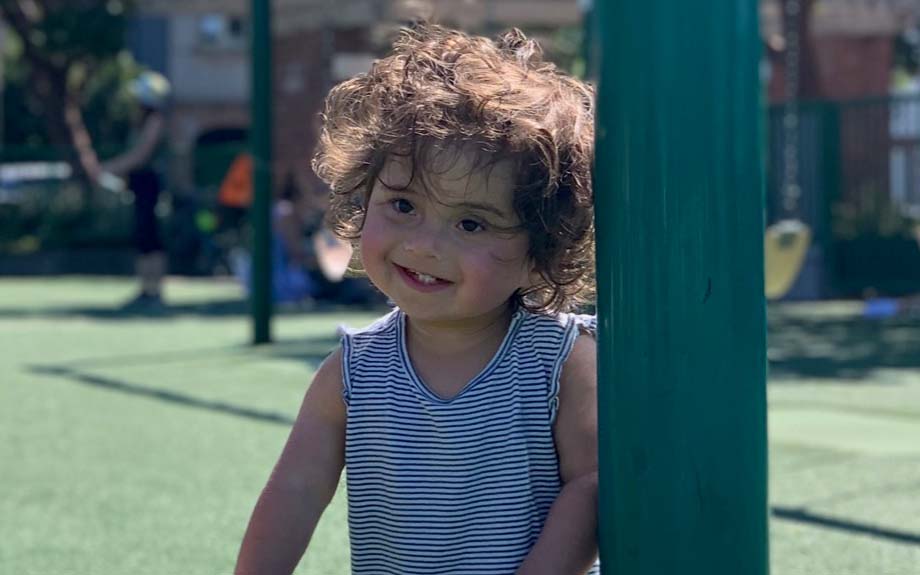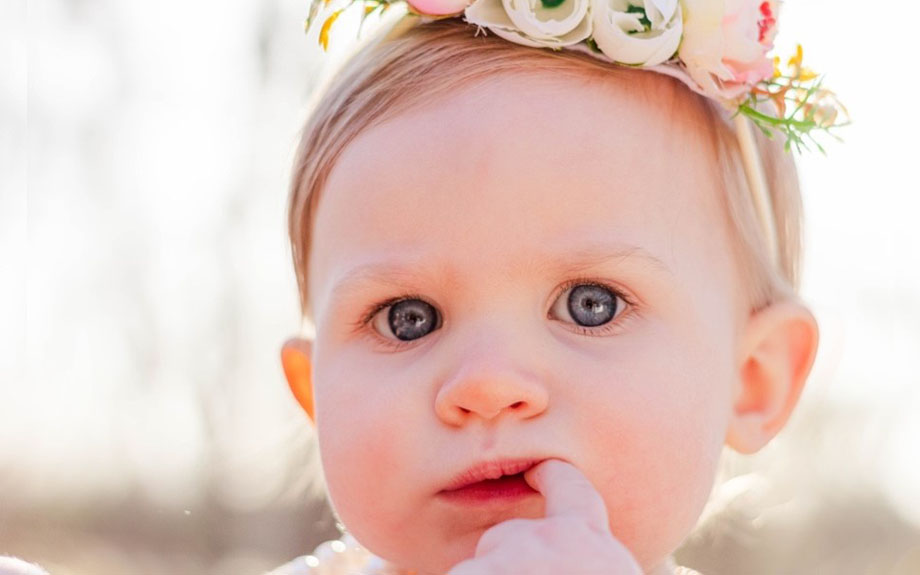Did you know that 1 in 8 couples worldwide has trouble getting pregnant or sustaining a pregnancy? In honor of National Infertility Awareness Week, we’ve encouraged our employees to share their stories of infertility, parenting, and journeys to parenthood. Infertility does not discriminate and we hope these stories can help others know they are not alone.
I am someone with infertility working in the women’s reproductive health field, which helped me figure out that I had a low ovarian reserve way earlier in life, and I was able to take the proper precautions.
I used to travel a lot for work. Whenever I would fly, people would ask me what I did, and whenever I explained that I worked in the women’s health and IVF field, there was always someone that said, ‘Oh, my aunt, or myself, or my sister had IVF!’ Only once people knew my job did they feel comfortable to start sharing their stories.
“I believe the more people you can share and be open with, the less taboo infertility becomes.”
I always wanted to get the word out about my experience. I know when I was going through everything, my friends thought I was crazy because I wasn’t ready to have kids, and I was freezing my eggs. They would try to reassure me, saying things like ‘Lia, like come on, it’s fine, infertility is not going to happen to you‘ and then Flash Forward six years!
So, my story:
When I was 26, I thought about becoming an egg donor, and that was something that felt altruistic. I wanted to help all these patients coming through the clinics I worked in, and it was an avenue that I felt comfortable with. In preparation for that, I had to take different screening tests. I took an AMH (Anti-Mullerian Hormone) test to measure my hormone levels, and then I had to get ultrasounds, and in that process, I was told that I probably didn’t want to be an egg donor because it turned out I didn’t have any eggs to donate!
The doctor said, ‘Hey, you’ve got to keep these for yourself. You have a low ovarian reserve.’ It was estimated I was on the spectrum of a 42-year-old woman at the age of 26. I was nowhere near having kids at that point. I had only just started dating my (now) husband, and at that time, I didn’t know that we would get married.
I questioned what my next steps should be. The doctor suggested I could go through an egg-freezing cycle. At 27, I tried to cycle twice, and I couldn’t. Finally, the third time I struck gold, and I got nine eggs to freeze.
Flash forwards a few years, we got married, and decided to fertilize my frozen eggs. We fertilized them, and I went through PGT-A testing. It turned out we only had one euploid embryo. That was a little discouraging, my eggs were frozen, and my husband was young and healthy.
“We didn’t think we would have any infertility problems.”
I wanted more euploid embryos, so I decided to cycle again at 29. From there, I ended up getting three more euploid embryos for a total of four. I’m very fortunate as that gave us a little bit more wriggle room!
I understood a lot already from my job, but I didn’t realize how much I didn’t know from the IVF patient side, such as the medications and shots you need to administer. It was very overwhelming. I couldn’t imagine how people feel with no understanding of the process until they go through it themselves. There’s so much to learn, and you have to learn it really quickly!
A few years later, I felt I was ready to get pregnant and start a family. And so, we transferred embryo number four which successfully implanted and led to my healthy baby boy, JD!
My son is over a year old now, it’s crazy, but getting to him was a long process. By the time I first received my diagnosis, to egg retrieval, then to fertilization, and then going through another cycle to having my baby. That timeline was spread out over six or seven years.
I’m happy that I had the knowledge from working in the women’s reproductive health field to understand the IVF process. I saw patients come through that were 23, 24, 25, and it inspired me to start thinking about my own fertility. Now I have my son and I have three euploid embryos left. Eventually, I think I will transfer another one, but it’s nice that I don’t have to feel pressure to cycle and have babies in quick succession.
Overall, it was a process I didn’t anticipate going through. I’m relatively healthy, I have no major health conditions, and I’ve always been in good shape. I eat well and take care of myself. It’s just something that you can’t control, it was not the diagnosis I wanted to get, but I felt like I was able to take steps to have the life and the family that I eventually wanted in my own time.
For people in their mid to late twenties who are thinking they might settle down in maybe five years or so, I would recommend that they have these conversations with their OB/GYNs and ask about getting their fertility tested. My AMH test was just a quick blood test, nothing too invasive. It helped me better understand my own health and gave me the opportunity to make decisions, like freezing my eggs. I would say, in particular to women who are in their twenties, keep track of your health and stay informed about your fertility. If you are informed, you can make decisions about your future more easily, giving you more time to deal with anything unexpected.
For people in their mid to late twenties who are thinking they might settle down in maybe five years or so, I would recommend that they have these conversations with their OB/GYNs and ask about getting their fertility tested. My AMH test was just a quick blood test, nothing too invasive. It helped me better understand my own health and gave me the opportunity to make decisions, like freezing my eggs.
I would say, in particular to women who are in their twenties, keep track of your health and stay informed about your fertility. If you are informed, you can make decisions about your future more easily, giving you more time to deal with anything unexpected.

